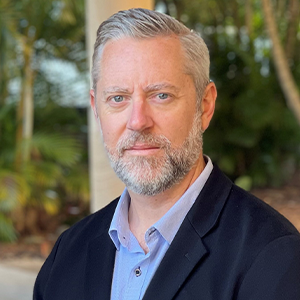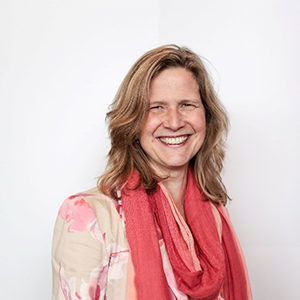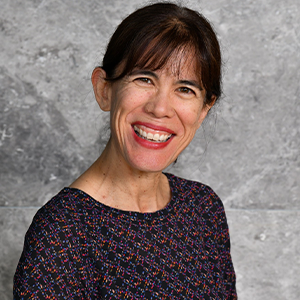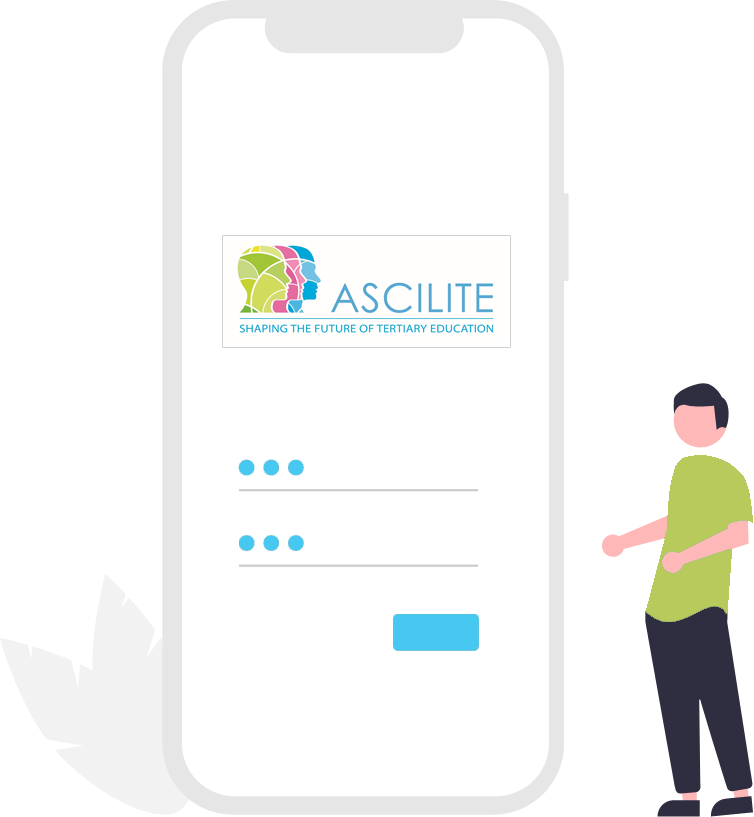The 2024 ASCILITE Conference will take place from December 1-4, 2024 hosted by the University of Melbourne, Australia.
The conference theme is: Navigating the Terrain: Emerging Frontiers in Learning Spaces, Pedagogies, and Technologies
We look forward to seeing you in Melbourne and warmly welcoming you to the University of Melbourne’s Parkville campus!
#ASCILITE24
We acknowledge and pay respect to the Traditional Owners of the lands upon which the University of Melbourne campuses are situated. Read about the University of Melbourne’s commitment to reconciliation

Associate Professor

Doctor

Professor

Research Professor

December 1, 2024 09:00

How can we incorporate more learner agency and choice into the classroom and the curriculum? This workshop uses a challenge-based learning framework for addressing the real-world challenge of introducing learner agency into the classroom and curriculum. In this workshop, participants will engage with the concepts of self-determined learning (heutagogy) and learner agency, investigate the challenges around these concepts, and design actionable solutions for addressing these challenges within their pedagogy and curriculum design.
Participants will:
• Identify and define key challenges in realising learner agency and choice within their learning environments
• Share experiences in introducing learner choice into course design and pedagogy
• Collectively and collaboratively ideate in designing potential solutions for these challenges
• Create an action plan for realising the solutions
• Present solutions and provide peer-to-peer feedback
December 1, 2024 09:00

(Co-presenters: Dr Paula de Barba and Dr Eduardo Oliveira)
This interactive workshop will explore the intricate relationship between AI, educational technologies, and learning processes in tertiary education. Drawing on diverse research experiences, the facilitators will guide participants through methodological approaches for evaluating technology-enhanced learning, drawing on examples from their own research and practice. The session will blend insights from education, educational psychology, AI, and computer science to provide a comprehensive view of the field.
Participants will explore:
• Cutting-edge methodologies for evaluating learning with technology
• The impact of AI on learning, educational practices, and research
• Interdisciplinary perspectives on learning analytics
By the end of the workshop, attendees will gain a nuanced understanding of researching AI-enhanced learning environments and practical strategies for investigating the effects of educational technologies on learning outcomes and processes. Join us to discuss the future of education and educational technology research in the AI era.
Workshop facilitators:
Associate Professor Jason Lodge is the Director of the Learning, Instruction, and Technology Lab at The University of Queensland. Jason explores the cognitive, metacognitive, and emotional aspects of learning, particularly in higher education and with digital technologies. He also serves as Deputy Associate Dean (Academic) in the Faculty of Humanities, Arts, and Social Sciences. Additionally, Jason is an Editor of Student Success.
Dr Paula de Barba is a Lecturer on the Monash Online team in the DVC(Education) Portfolio at Monash University, where she oversees the quality assurance of postgraduate online courses. She has extensive experience developing, implementing, and researching innovative educational technologies in higher education. Paula's expertise lies in the intersection of Educational Psychology and Educational Technology, and she is enthusiastic about empowering students to be active agents in their learning journey.
Dr Eduardo Oliveira is a Senior Lecturer in the School of Computing and Information Systems at the University of Melbourne, specialising in software engineering and the practical applications of AI in education. With extensive experience developing enterprise AI projects—from online safety tools to AI-driven platforms that enhance assessments and employability—Eduardo consistently pioneers innovative teaching practices. In 2024, he received the prestigious Edward Brown Award for Teaching Excellence and the GEM Scott Teaching Fellowship from the University of Melbourne, recognising his impactful initiatives in AI and education.
December 1, 2024 09:00

Educators have come to rely on the use of technology enhanced learning pedagogies as a means of achieving better student learning. As such, the application of TEL pedagogies has grown to address a range of teaching and learning challenges, despite a mixed body of evidence documenting its effectiveness. A behaviour-centred approach can improve the likelihood of effectiveness of such pedagogies by targeting the design of TEL to the specific behaviours educators want to see their students perform during learning. This approach takes into careful consideration the nature of the challenge that TEL is destined to address, the specific preferences, motivations and needs of students, the method of implementation, as well as the measurement of impact.
In this workshop, we offer a range of practical and theoretical tools drawn from the behavioural sciences and encapsulated in an evidence-informed framework of behaviour change–the BehaviourWorks Australia Method–to demonstrate that the efficacy of TEL pedagogies can be optimised via a rigorous process.
The Method has been tried and tested across hundreds of industry projects, and can be applied equally as effectively in the context of education, with the purpose of successfully designing and implementing new or existing technology enhanced learning pedagogies.
December 1, 2024 13:00

Educational design research is a genre of inquiry in which the iterative development of solutions to practical and complex problems provides the setting for scientific inquiry. The process typically ensues in multiple iterations of analysis and exploration, design and construction, and evaluation and reflection. When structured well, insights from each phase are valuable in their own right, and also contribute to the overall goals of the study.
This workshop will start with a plenary session to introduce design research as well as to clarify the origins and nature of the approach. Building on this, the majority of the time will be focused on taster experiences in which participants ‘imagineer’ how they would structure each phase in an authentic case so that it serves both field-based stakeholders and scientific understanding, simultaneously.
December 1, 2024 13:00

Join us for an engaging, hands-on workshop designed to empower academics with the skills to integrate GPT tools into their classroom settings. This workshop will provide practical guidance on building and deploying new tools to enhance student learning experiences.
Given the rapid evolution of this technology, the workshop content may be updated to include the latest advancements. Currently, the planned topics include:
• Crafting Effective Prompts: Learn how different prompt structures can yield dramatically different outputs through practical examples.
• Creating Custom Chatbots: Discover how to build custom chatbots using GPTs or by leveraging third-party user interface tools to create bespoke ChatGPT-wrappers.
• Coding for Non-Coders: Explore how GPTs can help develop sophisticated software through trial-and-error iterations, even for users with no prior coding knowledge.
This workshop is designed for academics looking to upskill with emergent GPT-tools to enhance their teaching methods.
December 2, 2024 08:30

Kathleen Fitzpatrick Theatre - B101
December 2, 2024 08:45

Kathleen Fitzpatrick Theatre - B101
December 2, 2024 09:15

Kathleen Fitzpatrick Theatre - B101

Susan McKenney
Professor
December 2, 2024 10:15

Kathleen Fitzpatrick Theatre - B101
December 2, 2024 11:00

December 2, 2024 11:00
December 2, 2024 11:30

Dark Green Room B101
December 2, 2024 12:00

Dark Green Room B101
December 2, 2024 12:30

Dark Green Room B101
December 2, 2024 13:30

Dark Green Room B101
December 2, 2024 14:00

Dark Green Room B101
December 2, 2024 14:30

Dark Green Room B101
December 2, 2024 15:30

Dark Green Room B101
December 2, 2024 15:30

Dark Green Room B101
December 2, 2024 16:00

Dark Green Room B101
December 2, 2024 16:30

Dark Green Room B101
December 2, 2024 11:00

Pink Room 153
December 2, 2024 11:00

Pink Room 153
December 2, 2024 11:30

Pink Room 153
December 2, 2024 12:00

Pink Room 153
December 2, 2024 13:30

Pink Room 153
December 2, 2024 13:30

Pink Room 153
December 2, 2024 14:00

Pink Room 153
December 2, 2024 14:30

Pink Room 153
December 2, 2024 15:30

Pink Room 153
December 2, 2024 15:30

Pink Room 153
December 2, 2024 16:00

Pink Room 153
December 2, 2024 11:00

Light Blue Room 253
December 2, 2024 11:00

Join us for a forward-thinking session that tackles the evolving landscape of education and the need for assessments that go beyond mere grades to truly support student learning and academic integrity. Discover how innovative technologies—such as Gradescope and Paper to Digital, the latest enhancements to Turnitin Feedback Studio for paper-based assessments, Turnitin’s "proof of process" add on for tracking students' work, and ExamSoft—are transforming assessment practices. Learn how these tools empower educators to monitor student progress, deliver formative feedback, and uphold assessment integrity. This session will showcase how digital solutions can adapt to diverse pedagogical needs across disciplines, significantly improve grading efficiency, elevate student learning outcomes, and ensure secure, reliable assessments. Don’t miss this opportunity to explore how technology is redefining education—join us and be part of the conversation!
Light Blue Room 253
December 2, 2024 11:30

Light Blue Room 253
December 2, 2024 13:30

Explore the impact of H5P's acquisition on non-Brightspace users and see how Deakin University innovates with H5P and Brightspace. Discover D2L's evolution, technological advancements, and future direction, emphasizing our mission to transform learning experiences.
Light Blue Room 253
December 2, 2024 14:00

Light Blue Room 253
December 2, 2024 15:30

Light Blue Room 253
December 2, 2024 11:00

Light Green Room 256
December 2, 2024 11:00

Light Green Room 256
December 2, 2024 11:20

Light Green Room 256
December 2, 2024 11:40

Light Green Room 256
December 2, 2024 12:00

Light Green Room 256
December 2, 2024 13:30

Light Green Room 256
December 2, 2024 13:30

Light Green Room 256
December 2, 2024 13:50

Light Green Room 256
December 2, 2024 14:10

Light Green Room 256
December 2, 2024 14:30

Light Green Room 256
December 2, 2024 15:30

Light Green Room 256
December 2, 2024 11:00

White Room 453
December 2, 2024 11:00

White Room 453
December 2, 2024 11:20

White Room 453
December 2, 2024 11:40

White Room 453
December 2, 2024 12:00

White Room 453
December 2, 2024 13:30

White Room 453
December 2, 2024 13:30

White Room 453
December 2, 2024 13:50

White Room 453
December 2, 2024 14:10

White Room 453
December 2, 2024 14:30

White Room 453
December 2, 2024 15:30

White Room 453
December 2, 2024 15:30

White Room 453
December 2, 2024 15:50

White Room 453
December 4, 2024 16:10

White Room 453
December 2, 2024 16:30

White Room 453
December 2, 2024 11:00

Dark Blue Room 456
December 2, 2024 11:00

Dark Blue Room 456
December 2, 2024 11:20

Dark Blue Room 456
December 2, 2024 11:40

Dark Blue Room 456
December 2, 2024 12:00

Dark Blue Room 456
December 2, 2024 13:30

Dark Blue Room 456
December 2, 2024 13:30

Dark Blue Room 456
December 2, 2024 13:50

Dark Blue Room 456
December 2, 2024 14:10

Dark Blue Room 456
December 2, 2024 14:30

Dark Blue Room 456
December 2, 2024 15:30

Dark Blue Room 456
December 2, 2024 15:30

Dark Blue Room 456
December 2, 2024 16:10

Dark Blue Room 456
December 2, 2024 16:30

Dark Blue Room 456
December 3, 2024 08:30

Kathleen Fitzpatrick Theatre - B101
Dark Green Room B101
December 3, 2024 08:55

Kathleen Fitzpatrick Theatre - B101
Dark Green Room B101
December 3, 2024 09:00

Kathleen Fitzpatrick Theatre - B101
Dark Green Room B101

Chris Keyon
Keynote Speaker
December 3, 2024 09:30

Kathleen Fitzpatrick Theatre - B101
Dark Green Room B101

Dr. Lisa Marie Blaschke
Doctor
December 3, 2024 11:00

Dark Green Room B101
December 3, 2024 11:00

Kathleen Fitzpatrick Theatre - B101
Dark Green Room B101
December 3, 2024 11:30

Dark Green Room B101
December 3, 2024 12:00

Dark Green Room B101
December 3, 2024 13:30

Dark Green Room B101
December 3, 2024 13:30

Dark Green Room B101
December 3, 2024 14:00

Dark Green Room B101
December 3, 2024 14:30

Dark Green Room B101
December 3, 2024 15:15

Dark Green Room B101
December 3, 2024 15:15

Dark Green Room B101
December 3, 2024 15:45

Dark Green Room B101
December 3, 2024 11:00

Pink Room 153
December 3, 2024 11:00

Pink Room 153
December 3, 2024 11:10

Pink Room 153
December 3, 2024 11:20

Pink Room 153
December 3, 2024 11:30

Pink Room 153
December 3, 2024 11:40

Pink Room 153
December 3, 2024 11:50

Pink Room 153
December 3, 2024 12:00

Pink Room 153
December 3, 2024 12:10

Pink Room 153
December 3, 2024 12:20

Pink Room 153
December 3, 2024 13:30

Pink Room 153
December 3, 2024 13:30

Pink Room 153
December 3, 2024 13:40

Pink Room 153
December 3, 2024 13:50

Pink Room 153
December 3, 2024 14:00

Pink Room 153
December 3, 2024 14:10

Pink Room 153
December 3, 2024 14:20

Pink Room 153
December 3, 2024 14:30

Pink Room 153
December 3, 2024 14:40

Pink Room 153
December 3, 2024 14:50

Pink Room 153
December 3, 2024 15:15

Pink Room 153
December 3, 2024 11:00

Light Blue Room 253
December 3, 2024 11:00

Light Blue Room 253
December 3, 2024 13:30

Light Blue Room 253
December 3, 2024 13:30

Light Blue Room 253
December 3, 2024 14:30

Presented by Cliff Archey, Lead Product Marketing Manager for Grammarly for Education.
Entering the 2025 academic year, education leaders face a persistent question: How can they innovate with generative AI while upholding academic integrity? This balancing act is complex as traditional principles of academic integrity often conflict with AI technologies that can assist or even complete student work.
As AI collaboration in work and writing grows, merely identifying AI-assisted work is insufficient. Educators need to discern what is human-generated, AI-generated, and a blend of both. Furthermore, they need insight into how students are turning to different tools, sources, and strategies as they write in order to help students understand what impactful and responsible AI use in school and work looks like.
In this session, attendees will get a review of Grammarly Authorship, an innovative Grammarly feature that illuminates the entire composition process. Educators will see how work is created across the human-AI spectrum and how students can accurately explain their work, avoiding conflicting AI detection practices
Light Blue Room 253
December 3, 2024 15:15

Light Blue Room 253
December 3, 2024 15:15

Light Blue Room 253
December 3, 2024 11:00

Light Green Room 256
December 3, 2024 11:00

Light Green Room 256
December 3, 2024 11:20

Light Green Room 256
December 3, 2024 11:40

Light Green Room 256
December 3, 2024 12:00

Light Green Room 256
December 3, 2024 13:30

Light Green Room 256
December 3, 2024 13:30

Light Green Room 256
December 3, 2024 13:50

Light Green Room 256
December 3, 2024 14:10

Light Green Room 256
December 3, 2024 14:30

Light Green Room 256
December 3, 2024 15:15

Light Green Room 256
December 3, 2024 15:15

Light Green Room 256
December 3, 2024 11:00

White Room 453
December 3, 2024 11:00

White Room 453
December 3, 2024 11:20

White Room 453
December 3, 2024 11:40

White Room 453
December 3, 2024 12:00

White Room 453
December 3, 2024 13:30

White Room 453
December 3, 2024 13:30

White Room 453
December 3, 2024 13:50

White Room 453
December 3, 2024 14:10

White Room 453
December 3, 2024 14:30

White Room 453
December 3, 2024 15:15

White Room 453
December 3, 2024 11:00

Dark Blue Room 456
December 3, 2024 11:20

Dark Blue Room 456
December 3, 2024 11:40

Dark Blue Room 456
December 3, 2024 12:00

Dark Blue Room 456
December 3, 2024 13:30

Dark Blue Room 456
December 3, 2024 13:30

Dark Blue Room 456
December 3, 2024 13:50

Dark Blue Room 456
December 3, 2024 14:10

Dark Blue Room 456
December 3, 2024 14:30

Dark Blue Room 456
December 3, 2024 11:00

Dark Blue Room 456
December 4, 2024 08:55

Kathleen Fitzpatrick Theatre - B101
December 4, 2024 09:00

Kathleen Fitzpatrick Theatre - B101 - Dark Green

Jason Lodge
Associate Professor
December 4, 2024 10:00

Kathleen Fitzpatrick Theatre - B101 - Dark Green
December 4, 2024 11:00

December 4, 2024 11:00

APUBS Abstract - Dark Green Room - B101
December 4, 2024 11:30
December 4, 2024 12:00

APUBS Abstract - Dark Green Room - B101
December 4, 2024 13:30

December 4, 2024 13:30

APUBS Abstract - Dark Green Room - B101
December 4, 2024 14:00

APUBS Abstract - Dark Green Room - B101
December 4, 2024 14:30

APUBS Abstract - Dark Green Room - B101
December 4, 2024 15:00

Kathleen Fitzpatrick Theatre - B101 - Dark Green Room
December 4, 2024 11:00

December 4, 2024 11:00

APUBS Abstract - Pink Room - 153
December 4, 2024 11:10

APUBS Abstract - Pink Room - 153
December 4, 2024 11:20

APUBS Abstract - Pink Room - 153
December 4, 2024 11:30
December 4, 2024 11:40

APUBS Abstract - Pink Room - 153
December 4, 2024 11:50

Pink Room - 153
December 4, 2024 12:00
December 4, 2024 12:20
December 4, 2024 12:30

Pink Room - 153
December 4, 2024 13:30

December 4, 2024 13:30
December 4, 2024 13:40
December 4, 2024 13:50
December 4, 2024 14:00
December 4, 2024 14:10
December 4, 2024 14:30

APUBS Abstract - Pink Room - 153
December 4, 2024 14:40
December 4, 2024 14:50
December 4, 2024 12:10

Pink Room - 153
December 4, 2024 11:00

APUBS Abstract - Light Blue Room - 253
December 4, 2024 11:00

Light Blue Room - 253
December 4, 2024 13:30

December 4, 2024 13:30
December 4, 2024 14:30

APUBS Abstract - Light Blue Room - 253
December 4, 2024 11:00

December 4, 2024 11:00

Light Green Room - 256
December 4, 2024 11:20

APUBS Abstract - Light Green Room - 256
December 4, 2024 12:00

APUBS Abstract - Light Green Room - 256
December 4, 2024 13:30

December 4, 2024 13:30
December 4, 2024 11:00

White Room - 453
December 4, 2024 13:30

White Room - 453
December 4, 2024 11:00

Dark Blue Room - 456
December 4, 2024 13:30

Dark Blue Room - 456
Ready to see the ASCILITE Conference app in action? Register to gain access to the event today!
